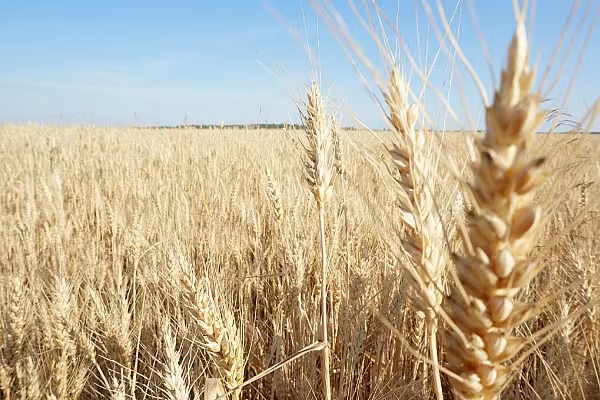Global farm commodities merchant Bunge Ltd reported a higher quarterly adjusted profit and raised its full-year earnings forecast by 21% on robust demand and tighter supplies of essential crops since Russia's invasion of Ukraine.
The two-month war exacerbated already thin supplies of grain and oilseeds after weather-reduced crops in South America and other key production areas, boosting demand and lifting crop processing margins for Bunge.
The results mirrored the robust earnings reported by rival Archer-Daniels-Midland Co on Tuesday.
Bunge's results highlighted how global grains merchants have weathered surging crop prices and supply chain disruptions triggered by the Russia-Ukraine war.
The two nations supply nearly a third of the world's wheat exports, a fifth of globally traded corn and around 80% of sunflower oil.
Soaring Food Inflation
World grain and vegetable oil supplies will not recover from disruptions caused by the war for 'a long period of time' so other growers and processors, particularly in South America, will play a greater role in tamping down soaring food inflation, Bunge chief executive Greg Heckman said.
"There will be a long tail on this because there is infrastructure that has been damaged. There are seaborne logistics that have to be untangled. There are waters that need to be de-mined," he said.
Bunge's Mykolaiv port facility sustained damage in fighting last month, but company executives said on Wednesday that it did not appear to be significant.
A prolonged conflict would be a tailwind for Bunge, which makes money trading and processing crops and shipping products around the world.
Bunge raised its full-year adjusted earnings guidance to $11.50 per share, from $9.50 previously, and said the guidance had 'upside potential' as tight supplies and strong demand persist.
Adjusted profit, excluding one-off items, rose to $4.26 per share, compared with $3.13 a year earlier, topping the consensus estimate of $2.94, according to Refinitiv IBES.
Read More: Food Prices Surged To New Record High In March: FAO














